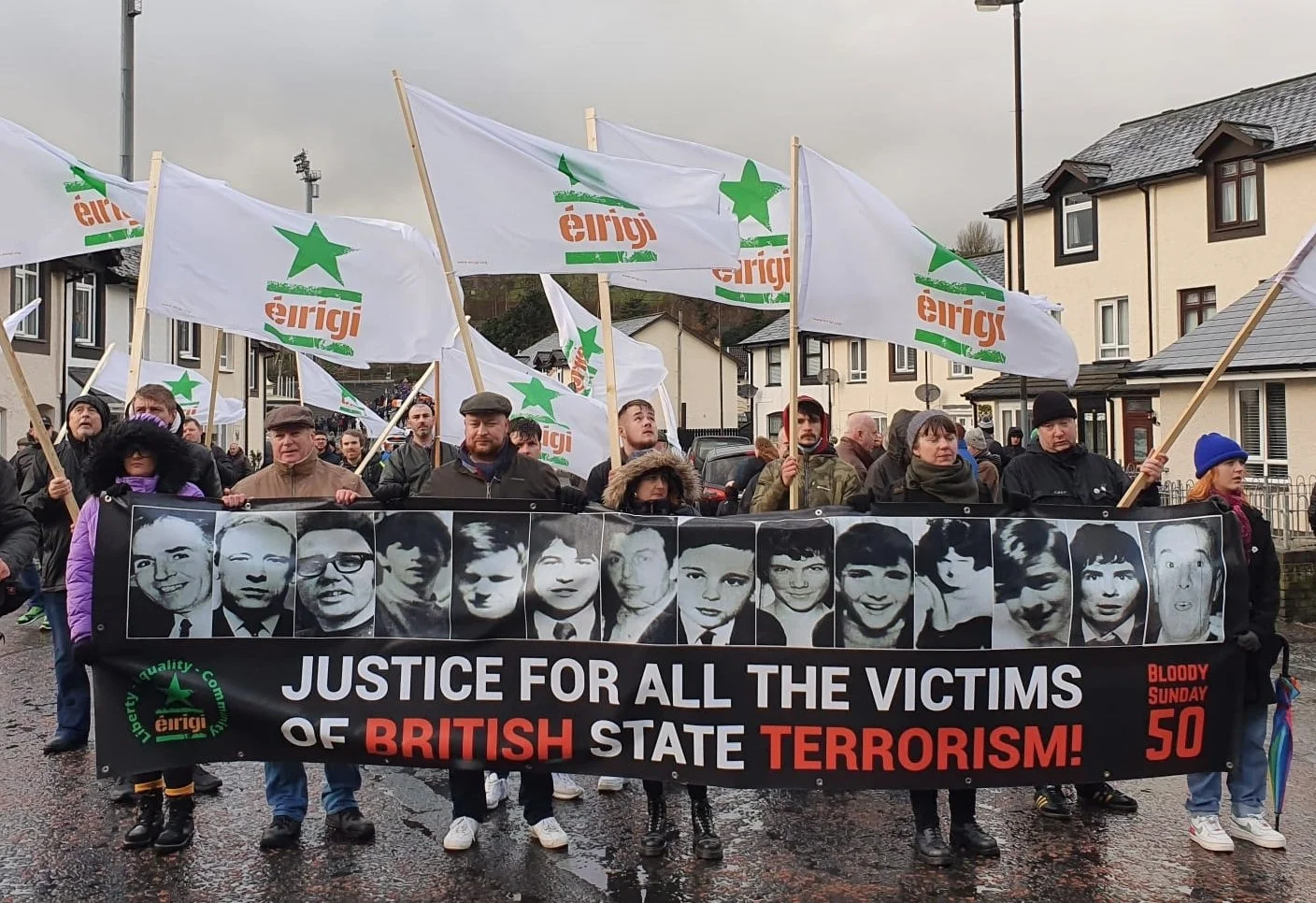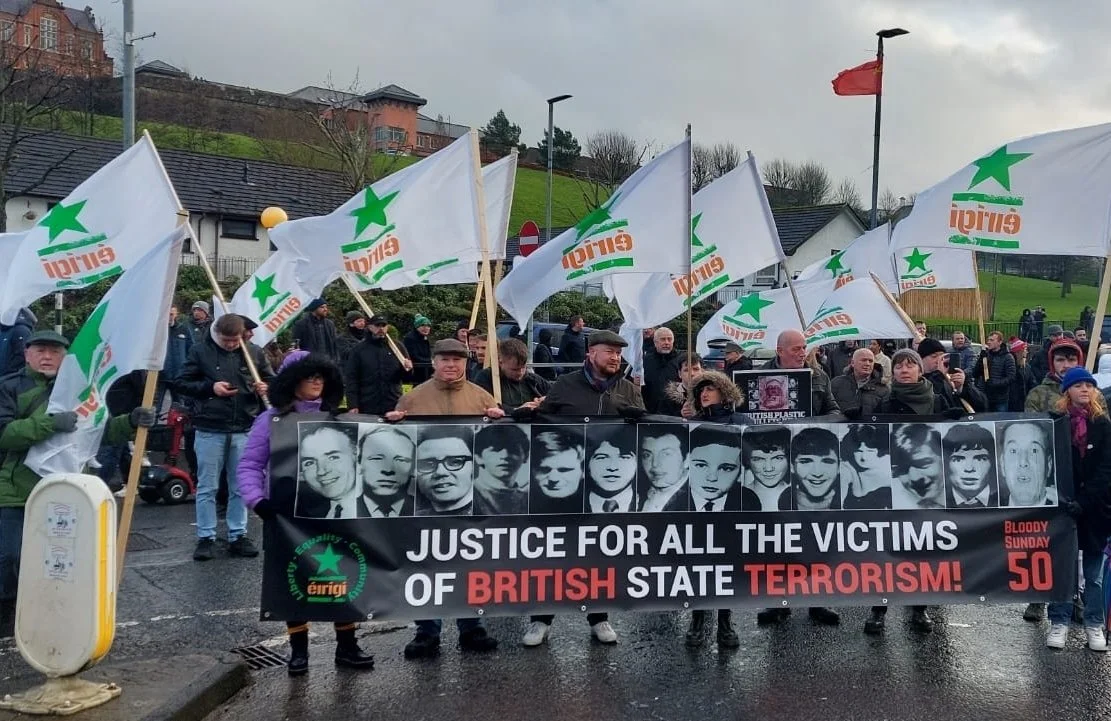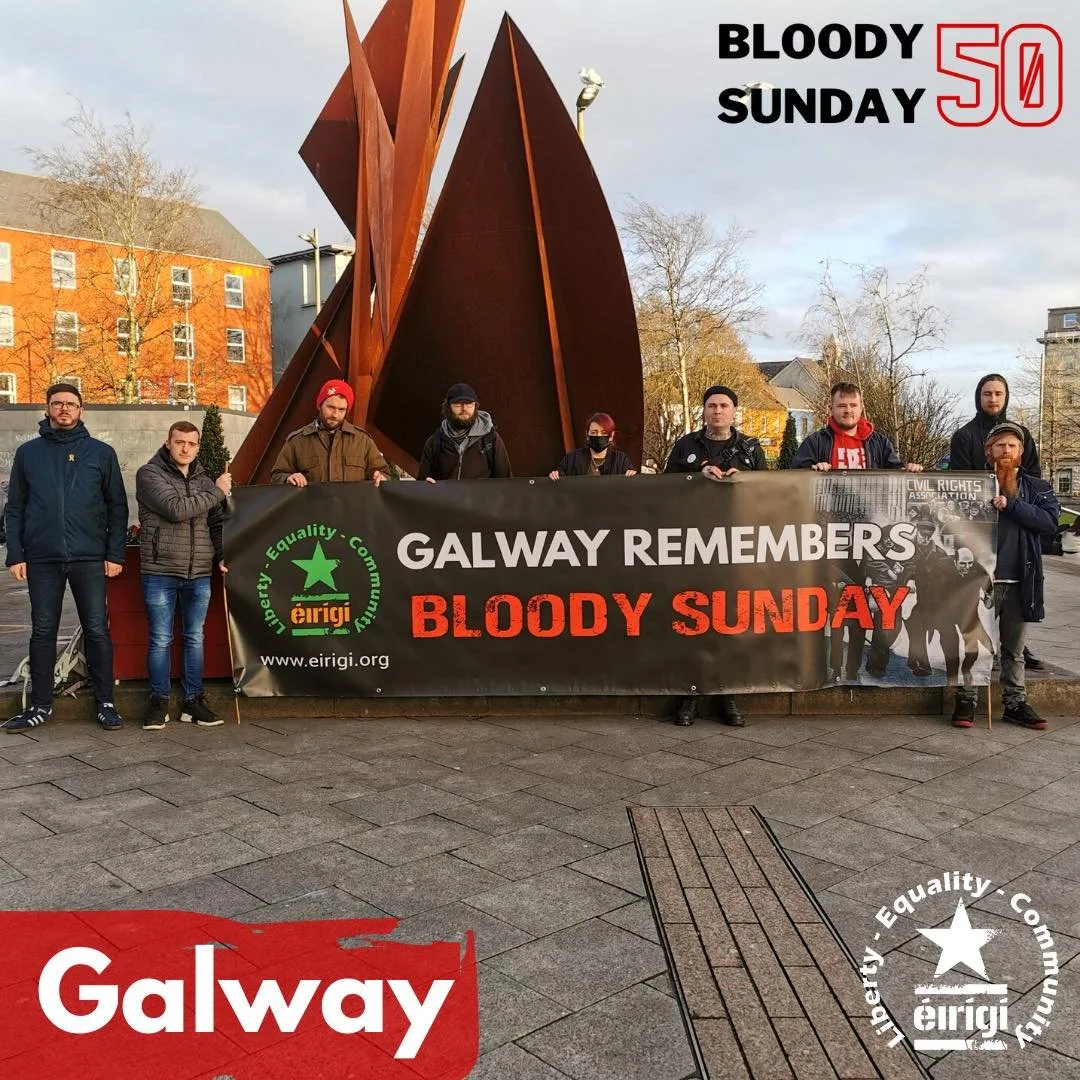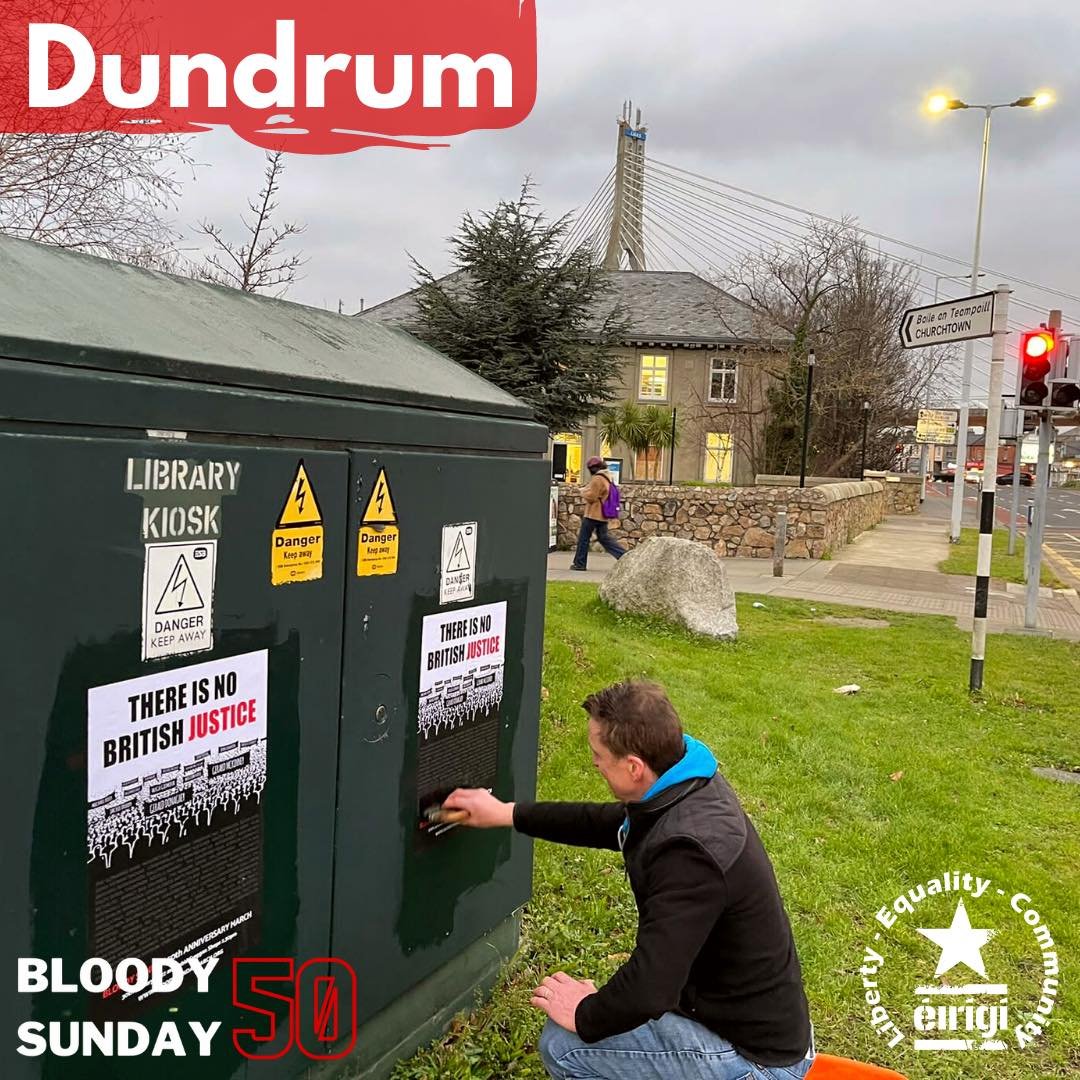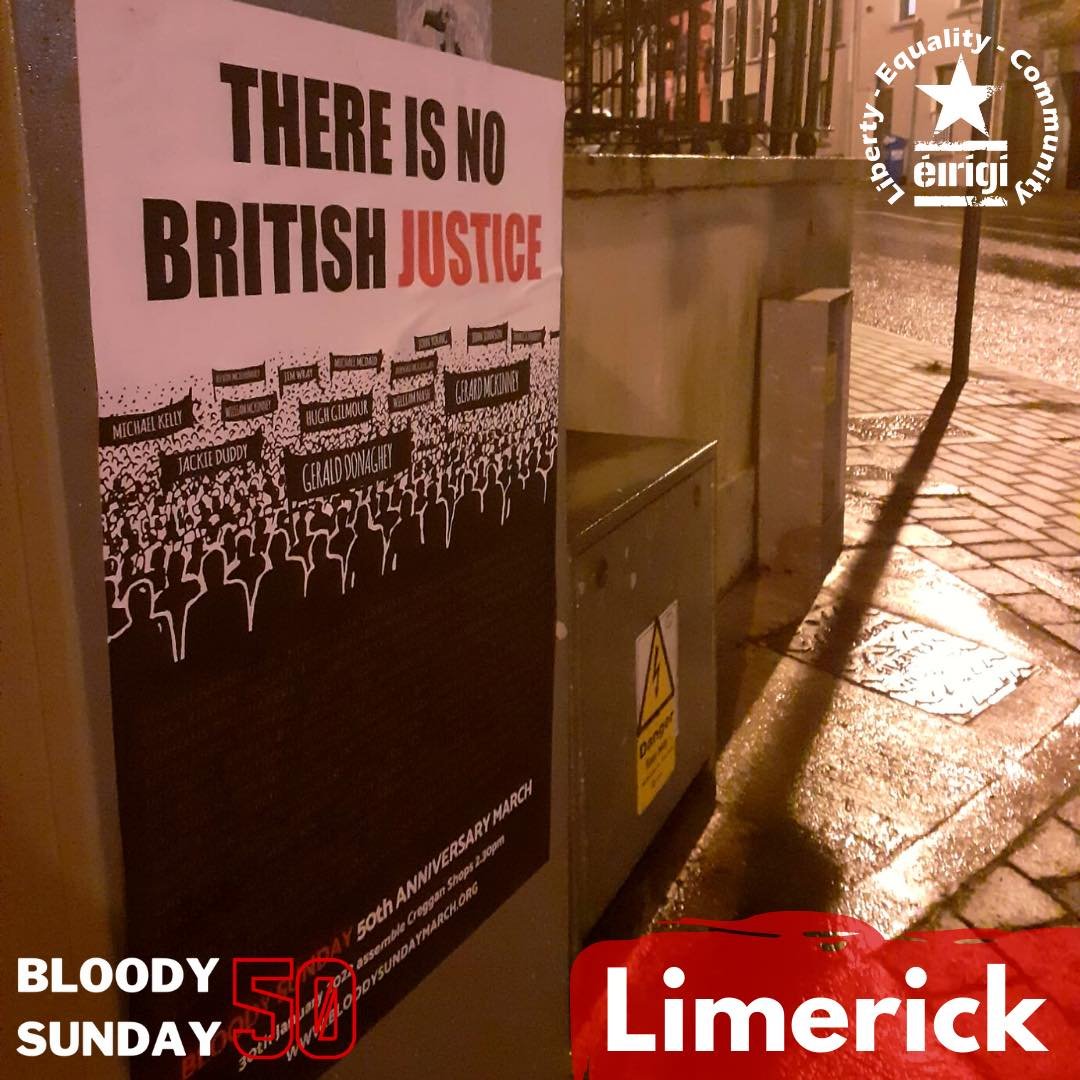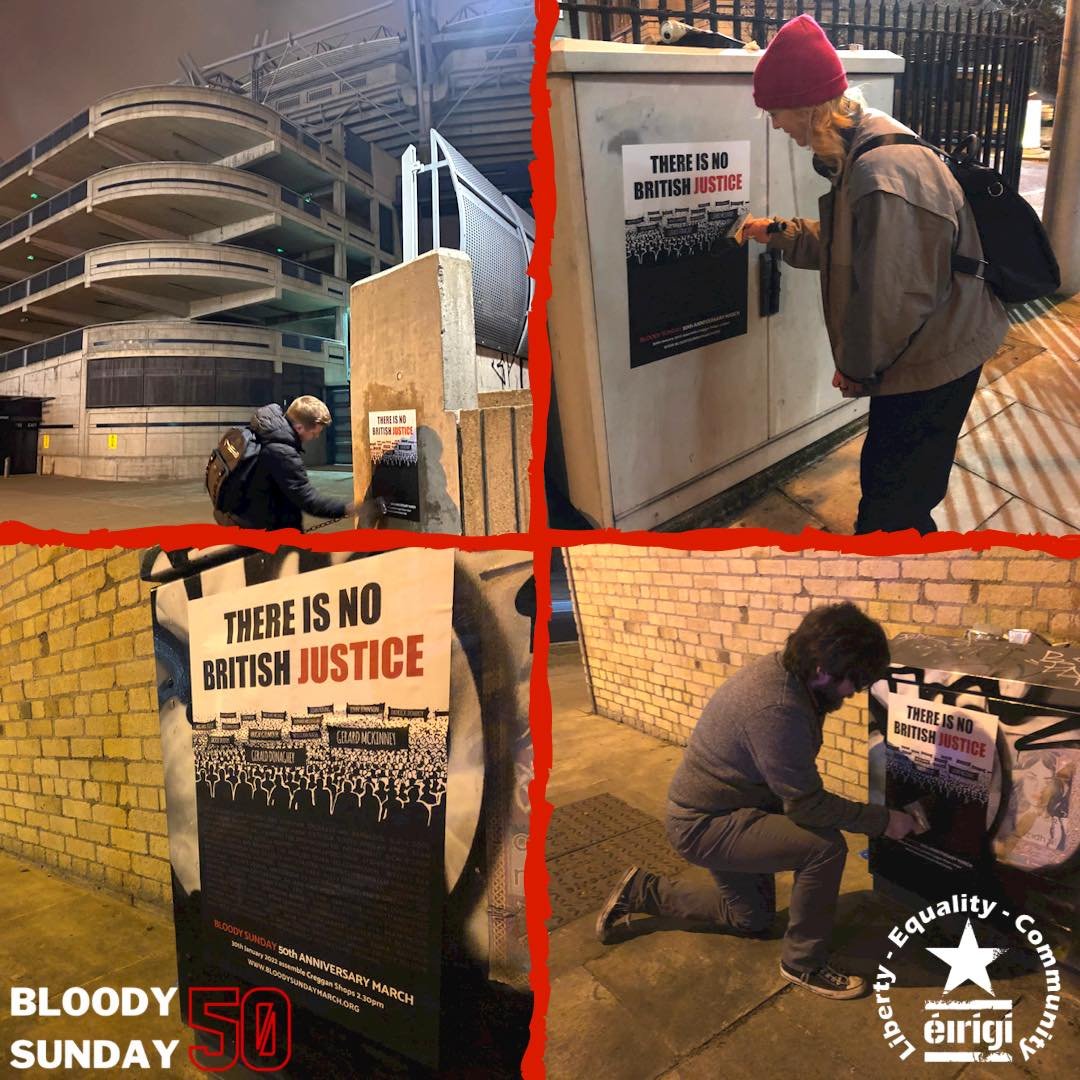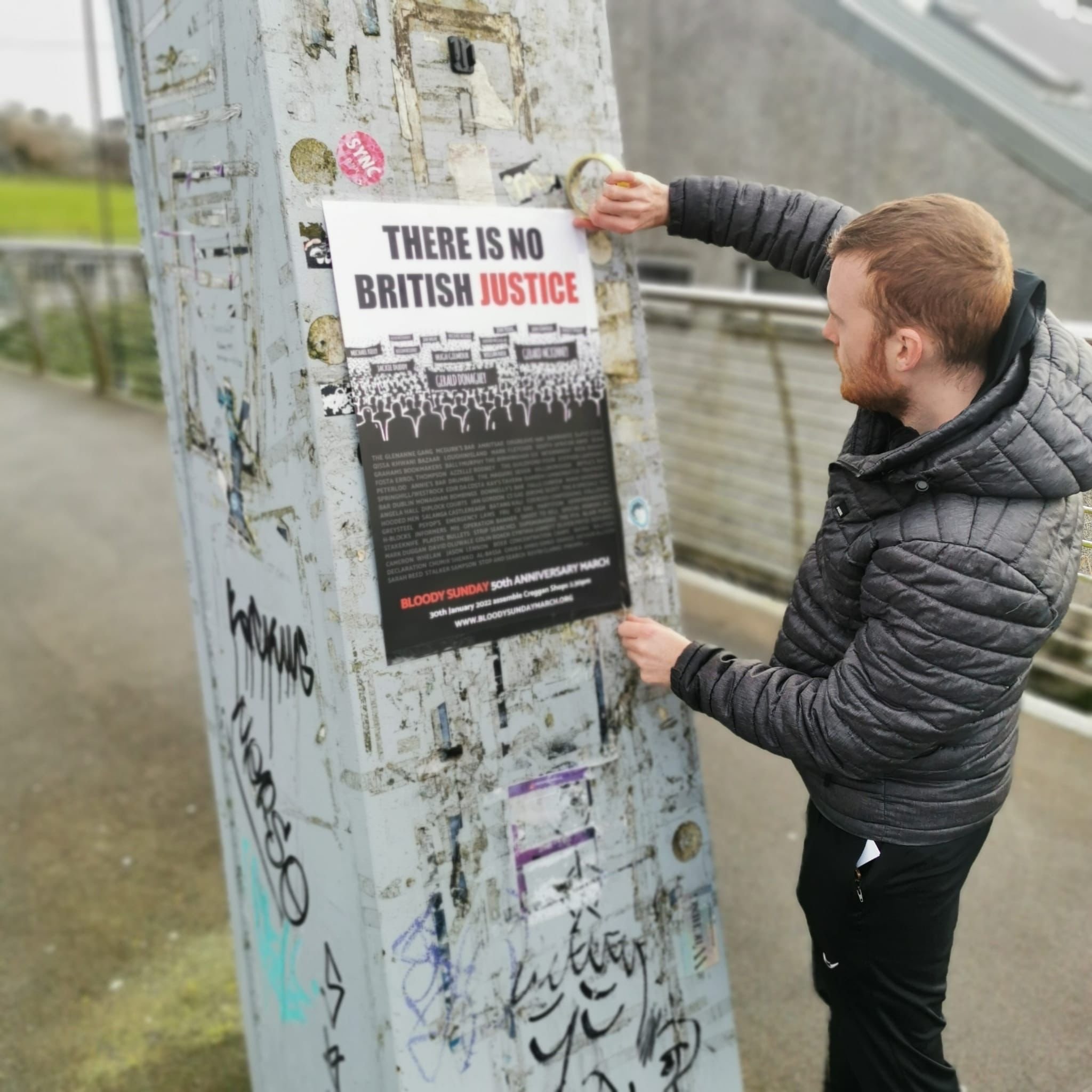Éirígí Marks Bloody Sunday 50th Anniversary In Galway & Derry
Éirígí activists and supporters from from across Ireland travelled to Derry on Sunday to mark the 50th anniversary of the Bloody Sunday Massacre. They came from Wexford, Limerick, Dublin, Westmeath, Kilkenny, Galway, Wicklow, Armagh, Antrim and elsewhere to join with thousands of others to stand in solidarity with those who were injured and the families of those who died on that fateful Sunday in 1972.
Section of the Éirígí bloc at the Bloody Sunday 50th anniversary march in Derry on Sunday, January 30th, 2022
The Éirígí bloc was led by a large, specially-commissioned banner which carried the text ‘Justice For All The Victims Of British State Terrorism!’, in reference to the hundreds of innocent civilians who died at the hands of the British Army / RUC or at the hands of unionist death squads that were armed and directed by the British state.
Those victims, and their thousands of surviving relatives and friends, have been denied both truth and justice by the British state - in some cases for more than five decades. The general amnesty for all combatants which the current British government is proposing to introduce, will effectively kill any prospect of these families ever securing justice for their loved ones.
Éirígí Gaillimh mark the 50th anniversary of Bloody Sunday on Eyre Square
On Saturday, January 29th, Éirígí Gaillimh organised a vigil in the City of the Tribes to mark the 50th anniversary of Bloody Sunday, giving local people who were unable to travel to Derry an opportunity to publicly mark the anniversary.
During the month of January, Éirígí activists in Dublin, Westmeath, Limerick, Galway and other counties erected posters highlighting the upcoming Bloody Sunday anniversary and the march to mark it.
Éirígí stands with all of the victims of British state terrorism and the families of those victims as they tirelessly campaign to expose the dirty war that Britain waged in Ireland for more than a quarter of a century from the 1969 onward.
Exposing that dirty war is important for a number of reasons; to bring truth to the victims and their families; to allow future generations to understand the most recent phase of armed conflict; to ensure that the actions of the British state are exposed to the world; to make it more difficult for Britain to ever wage another dirty war in Ireland.

